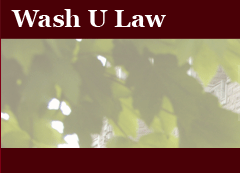Like Water for the West: Why Bison Could and Should Be What’s for Dinner
Publication Title
Washington University Journal of Law & Policy
Abstract
The most effective way to correct the environmental and health problems caused by grain-based industrial cattle ranching would be for people to become vegetarians. The current demand for meat demonstrates that such a drastic societal shift is unlikely to occur soon. Alternatively, this Note envisions a move to bison ranching, deliberately limited to a grass-fed and free-range approach. Bison are less destructive of rangeland ecosystems, more efficiently raised for meat, and healthier to consume when raised conscientiously. Short of eliminating livestock ranching altogether, “natural” bison ranching is a logical solution to the environmental, health, and economic problems made worse every day by the beef industry.
This Note examines the strength of the beef industry but also its entrenched problems. It introduces the Beef Research and Information Act, a law that has played a large role in the endurance of beef’s strengths and problems, and whose structure could be imitated for promoting the natural bison industry, instead. Then, this Note describes the vulnerability of the Beef Research and Information Act and notes three ways the Act could be eliminated so as to lessen cattle ranchers’ current market advantage over bison. This Note then makes recommendations for how to structure a proposed Natural Bison Research and Information Act that adapts components of the Beef Research and Information Act, to meet the needs of bison producers while fostering a healthier, more environmentally-sound meat industry. Finally, this Note suggests changes to other laws and policies that must accompany the Natural Bison Research and Information Act if the bison industry is to grow responsibly.
Recommended Citation
Rebecca Eissenberg,
Like Water for the West: Why Bison Could and Should Be What’s for Dinner,
45
Wash. U. J. L. & Pol’y
221
(2014),
https://openscholarship.wustl.edu/law_journal_law_policy/vol45/iss1/13
